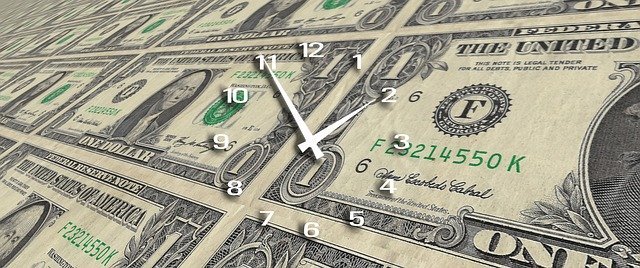credit-repair
You Need To Learn These Credit Score Improvement Tips

You can repair your credit and be better off.Use the tips listed below to start repairing your credit.
Fha Loans
The first step to repairing your ailing credit is to create a manageable, feasible financial plan. Making changes to become a wise spender means you have to make a budget and rules, then follow them. Don’t buy anything unless you absolutely need it. Only buy something if you have to have it and you can afford it.
Financing a home can be made more difficult if you have bad credit. FHA loans are good options in these circumstances, as they are backed by our federal government. FHA loans can even work when someone lacks the funds for down payment or pay closing costs.
If you are unable to get an unsecured credit card due to your low credit rating, consider a secured credit card. If you get a new card and use it responsibly, a new card can help you fix your credit.
Any credit cards that have balances over 50% of your limit should be paid off until they are less than 50% of your limit. You should keep your balances under fifty percent; anything over this and you can lower your credit rating, so spread out the money you own and pay down your credit cards.
You may be able to reduce your interest rate by maintaining a high credit score. This should make your payments easier and allow you to pay off your debt much quicker.
If you want to fix your credit avoid companies claiming they can remove all of your issues, they are lying. Negative entries that are otherwise accurate will stay on your record for seven years!
When beginning your credit repair journey, remain wary of companies pledging to get negative credit report entries deleted, especially if those entries are accurate. Regardless of their claims, these debts will stay on your report for seven years at a minimum. However, information that is not correct can be removed.
You must pay your bills off on time; this is very important. Your credit rating can improve almost immediately upon paying off some of your past due bills.
Joining a credit union is a way to build your credit score when you are having a hard time getting credit.
Paying your bills is something you need to do to repair your credit. Paying your bills on time and for the full amount is important. You will immediately see changes in your credit score when you begin to pay off your debts, especially those that are active.
Dispute every error you identify on any of your credit report.
Single Account
Call each of your charge card companies and ask them to lower the limit on them. Not only can this tactic prevent you from getting yourself in over your head with debt, but it can also imply that you are responsible to those companies and to any future companies.
If you are having problems retaining control of your charge habits, have your credit cards merged into one single account.You should arrange to make payments or make a balance transfer to your remaining account. This will let you to pay off a single account rather than many smaller ones.
If you wheel and deal and get a new payment plan, you should make sure to get the plan in writing. After you have paid the debt off completely, send proof of this to the major credit agencies.
Learn what affect a debt settlement plan will have on your credit rating before you sign up. Do some heavy researching before starting an agreement with any creditor; there are other options that may not damage your credit score as heavily. The creditor does not care what happens to your credit score, as long as they get their money.
Credit Cards
Pay off any balances on all credit cards as soon as you can. Pay down your cards that have the highest interest rates first. This will show future creditors that you are using credit cards wisely.
It will be easier to increase your credit rating if you only have one open credit card account. It is important to make small payments or transfer a balance to the open account. In this manner, you can take care of all your credit card debt by paying down a single balance.
Try and pay down any revolving accounts you have. You can improve your credit score by lowering your balances.
Try not to use your cards only for purchases you can afford to pay off. Use cash for things whenever possible.If you do use a credit card, be sure to pay it all in full.
Doing this will ensure that you keep a solid credit score. Every late payment appears on a credit report, and could potentially hurt your chances at a loan.

A terrible credit situation would be having many different debts you can’t afford to pay off multiple debts. Even if the payments you are making are the minimum ones, every bit that you send can help keep your creditors happy, which will likely stop them from getting in touch with collection agencies.
Make out a definite plan or program to pay past due and collection agencies.
When you receive a credit card statement you should immediately look at the statement. You are looking to see that every charge is correct and determining whether or not you are being charged for an item you didn’t buy. You are the only one that can verify if everything on there is the way it should be.
Credit Counseling
If you are having trouble creating or maintaining a budget, contact a credit counseling agency for help. These organizations can help you by negotiating with creditors to resolve a repayment plan that works for your financial situation. Credit counseling can be a key piece in helping you learn how to budget your finances and pay your obligations.
Only work with legitimate credit repair companies. Too many of these services will use your desperation to make money. Many people fall victim to these scams every day. Read all the reviews that you can find and you should be able to make a decision about who you can trust.
Creditors will be sure to look at the correlation between your debt versus your income. You will be looked at as a greater credit risk if your debt is too high in comparison with your income. You don’t have to pay it all at once, so you should make a plan to repay in a timely fashion and follow that schedule.
Existing Debt
The worst part of a credit crisis may be the collection agencies. Cease and desist correspondences can be legally used by a consumer to put off collection agencies; however they only help stop the harassing phone calls. Letters such as these prevent calls from collections agencies, but the consumer must still pay the debts under dispute.
The first thing you need to do when repairing your credit is to make a plan to begin to pay any outstanding debt. Existing debt lowers your credit rating and can be a burden. Your credit score will rise significantly if you do not have existing debt.
Look at your credit report cautiously before claiming that the discrepancies are no errors. There could be a mistake or error in error. If you can prove that a given discrepancy is invalid, you should submit a credit dispute to the institution that gave you a bad mark on your report.
An instant solution to your problems is usually too good to be true, especially when that solution is some kind of “magic” debt relief being offered by a lawyer. Because of the surge of credit issues out there, a lot of unscrupulous lawyers advertise that they can repair your credit for large fees. Investigate any lawyer thoroughly before contacting them for credit assistance.
Keeping your accounts in great order without having excessive overdraft charges or any bounced checks will show responsibility to potential lenders.
Try to work out payment plans that you will be able to follow when you deal with debt collectors and explain your situation honestly.
When you are involved in a credit crunch, you have many debts but not enough money to pay them. Try to divide all your available money between your creditors, so you can pay everyone at least something. Even a minimal payment can satisfy your creditors and keep your accounts from landing in collections.
You may run across credit repayment plans that you cannot afford when trying to fix your credit. Know your budget is and stick to it.
For example, you can hurt your score if you only keep your balance above $1800 when your card has a $2000 limit, even if you make your payments on time.
If you are having trouble creating or sticking with a budget, then you need to get in contact with a reliable credit counseling organization. Agents at these organizations can negotiate with creditors to set up payment plans for your debt, and they will teach you how to dig out and stay out of debt over time. Consumer credit counseling services can provide you with effective ways to better manage your money and pay off debt.
If you are looking to repair your credit, it is useful to have diversified kinds of credit accounts. Your overall credit score takes into account all types of credit types.
The bureaus make a note every time your credit score is.
Since your credit score measures how often you are late on your bills, the best way to raise your credit score is to pay your bills promptly. You are more likely to remember your payment due dates if you have some kind of reminder system set up. There are a wide variety of ways to set up reminders. Set it up using your online banking account and have emails sent to yourself. Another way is to use text messages to remind you of a certain payment you need to make.
This will help you raise your credit score and also show that you understand your bills.
You can start fixing your credit now, so you can have a better financial future. Take comfort in the fact that you do have no-cost options to repair your credit; all it takes is a little bit of footwork to get it done. These tips can make it possible for you to improve your credit effectively.
The first step to repairing your credit is to make a plan to begin to pay the money off. Your current credit score is depressed by existing debts, which are also a financial and psychological burden to you. Create a budget that is reasonable for you, and try to allocate as much money as possible toward your debt. The lower your debt, the better your credit score will be.

